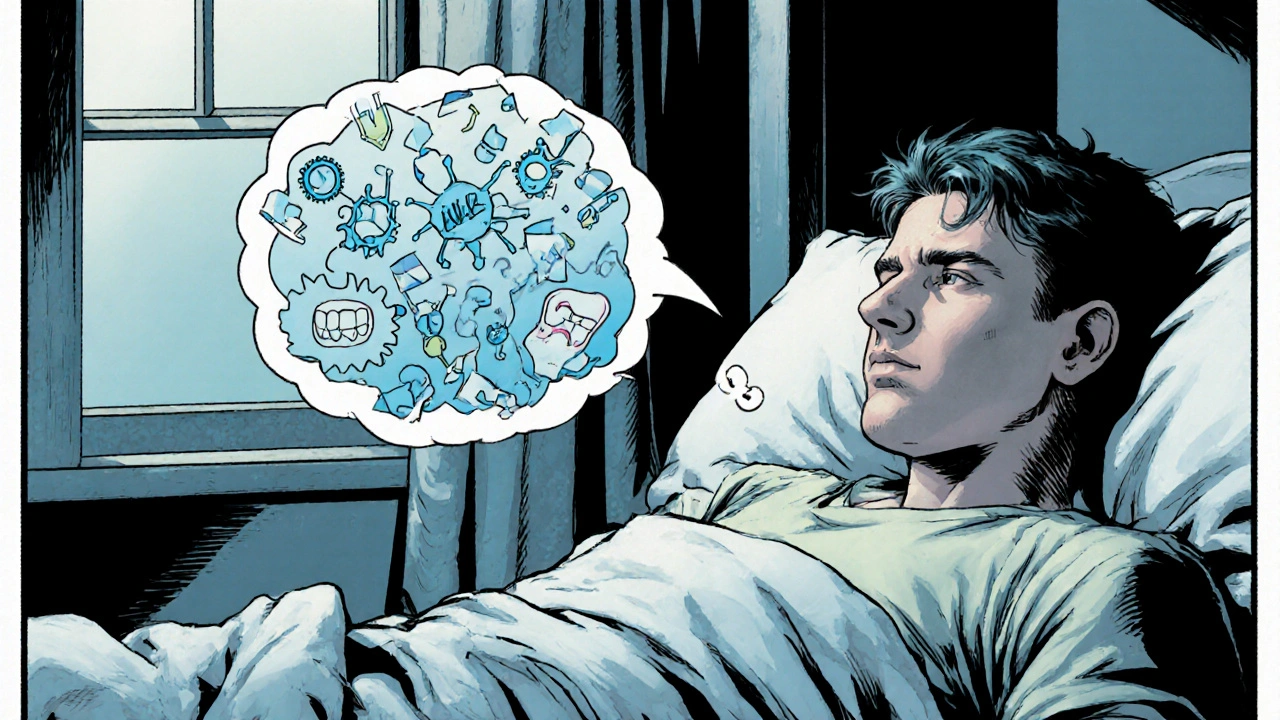Mental Health Basics: What You Should Know
Mental health can be complicated, but understanding your options helps a lot. If you or someone you know is dealing with depression, anxiety, or PTSD, it’s useful to learn about treatments that really work. This page breaks down some key mental health topics, from popular medications like Effexor to cutting-edge therapy using virtual reality.
How Effexor Works for Depression and Anxiety
Effexor, known by its generic name venlafaxine, is a common choice for treating depression and anxiety. It works by balancing chemicals in your brain that affect mood. What’s nice about Effexor is it helps with both depression and anxiety symptoms, which often come hand in hand. People taking Effexor usually start at a low dose that the doctor adjusts based on how they feel. It’s important to watch out for side effects like nausea or headaches and to talk openly with your doctor if anything feels off.
Real-world experiences with Effexor show it can be a game changer, but it’s not an instant fix. Some notice improvement in a few weeks while others take longer. The key is sticking with the treatment plan and keeping your doctor in the loop for the best results.
Virtual Reality Therapy: A New Way to Help PTSD
PTSD, or posttraumatic stress disorder, is tough because it traps people in fearful memories. Lately, therapists have started using virtual reality (VR) to help patients face those memories safely. Imagine wearing VR goggles that place you in a controlled recreation of the tough scenes triggering your PTSD. Sounds intense, right? But this controlled exposure helps the brain process trauma without overwhelming the person.
Studies show VR therapy can reduce anxiety and PTSD symptoms significantly. It’s like rewiring your brain to respond differently to those traumatic triggers. This therapy isn’t mainstream everywhere yet, but it’s gaining traction because it lets people confront and conquer their fears in a safer way than just talking about it.
Mental health treatment isn’t one-size-fits-all. While Effexor helps many with mood disorders, and VR therapy offers hope for PTSD, there are many paths to feeling better. Keeping informed, asking questions, and working closely with healthcare professionals makes a real difference on that journey.

How Enzyme Deficiencies Trigger Depression and Anxiety
Explore how enzyme deficiencies can cause depression and anxiety, learn key enzymes, gut links, nutrient support, and actionable steps to improve mood.
Read More
Psychological Impact of Deep Vein Thrombosis Diagnosis: Coping & Support
Explore how a deep vein thrombosis diagnosis affects mental health, common emotional reactions, coping strategies, and where to find support.
Read More
ADHD and College: Proven Strategies for Study, Time Management, and Accommodations
Practical strategies for college students with ADHD: build a realistic schedule, study smarter, use accommodations, and protect your health. Evidence-backed and doable.
Read More
Effexor: What To Know About Venlafaxine, Side Effects, Dosage, and Experiences
Effexor (venlafaxine) is a popular antidepressant used for depression, anxiety, and related conditions. This article explores how Effexor works, its real-world effects, common side effects, dosage tips, and stories from people who use it. You'll get clear, reliable info about living with Effexor and making treatment easier.
Read MoreHow Virtual Reality Therapy Can Help Individuals with Posttraumatic Stress Disorder
I recently came across the fascinating concept of virtual reality therapy being used to help individuals suffering from posttraumatic stress disorder (PTSD). It's amazing how technology can be utilized to recreate and control various scenarios, allowing patients to confront and process their traumas in a safe and controlled environment. By doing so, it can ultimately help them overcome their fears and anxieties associated with their traumatic memories. This innovative approach has shown promising results in various studies and has the potential to revolutionize how we treat PTSD. I'm really excited to see how this field develops and the positive impact it can have on countless lives affected by PTSD.
Read More